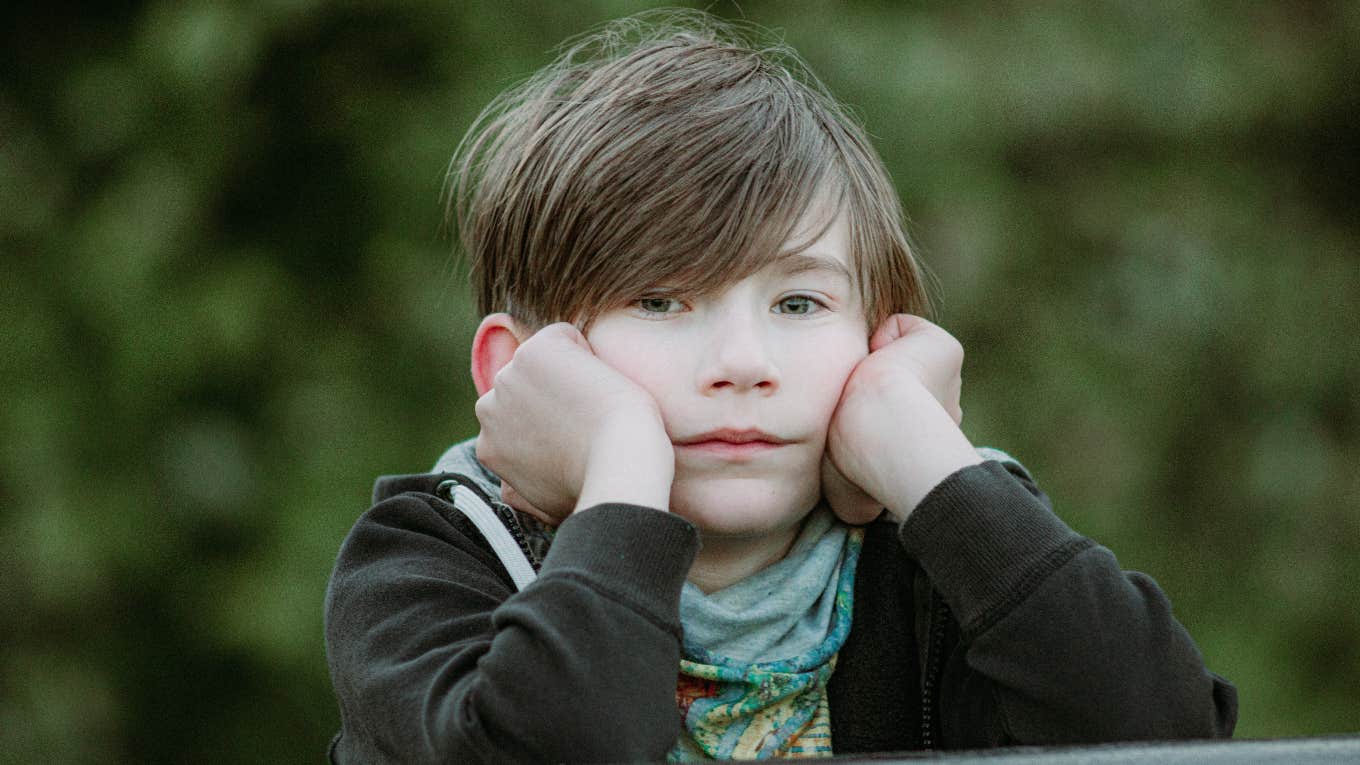5 Invisible Signs You Experienced Childhood Emotional Neglect
Licensed therapist Logan Cohen explains how the lack of essential experiences manifest in adulthood as 'invisible trauma.'
 Emvat Mosakovskis / Shutterstock
Emvat Mosakovskis / Shutterstock As a child, you may have felt neglected because your parents weren't around or didn't pay enough attention to you.
As an adult, you might seriously be questioning effect of what you've gone through, knowing you have some wound inside of you to heal, but unsure of what exactly that wound is.
Licensed therapist and certified trauma professional Logan Cohen highlights five signs you experienced childhood emotional neglect that cannot be healed until you learn how to recognize what it is you needed but didn't get.
5 Signs You Experienced Childhood Emotional Neglect
1. You feel really embarrassed about your emotions, so you don't share them.
Do you find it difficult to express your emotions? Do you feel embarrassed or ashamed whenever you try? All of this can stem from emotional neglect.
Cohen adds, "Sharing them has only ever resulted in either invalidation or other people pulling away."
And this is why expressing those hard emotions is especially difficult for you. Deep within yourself, you're terrified of showing your most vulnerable self, scared it will only cause more pain and suffering down the line.
2. Feeling pressured to be the strong one.
Have you been taught to always be strong? If so, you've probably heard the phrase, "Stop crying," all too often.
Yet, when it came to other people's emotions it was fair game. Likely, your parents felt all too comfortable ranting about their own personal issues to you.
Known as parentification, this occurs when, according to Newport Academy, "Parents look to their children for emotional and/or practical support, rather than providing it."
3. You feel like your emotions are a burden to others.
People who have been neglected emotionally see their emotions are burdens — and it's easy to see why.
As a child, you were met with eye rolls whenever you attempted to express yourself. And as a child, you were probably told to toughen it up because you were "stressing everyone out."
This is why you avoid sharing your emotions in the first place. Without realizing it, you worry that if you show your emotions, you might end up losing your relationships with others.
4. You have a sneaking sense that if you let others know how you feel then they'll use it against you or it will make you look weak.
As an emotionally neglected child, you were unconsciously taught that people aren't reliable and that your emotions were a tool meant to be used against you.
So, to avoid being considered weak you've learned to hide your emotions well from others. And your body has learned to do this unconsciously, to protect you from the pain and suffering others could inflict.
5. You struggle to trust your emotions, which leads you to overthink everything.
Do you struggle with trusting your emotions? Like, someone can ask you how you feel and you struggle to form a coherent sentence.
The reality is, that you likely have difficulty aligning your instincts with your logic. Likely, your parents taught you that your emotions were unreliable.
This, in turn, created a constant inner tug-of-war within yourself.
 Pk_camera / Shutterstock
Pk_camera / Shutterstock
Growing up in a neglectful household is both incredibly tough and traumatizing. And it's a type of trauma that doesn't get talked about because of how silent and subtle it is.
However, knowing these signs of emotional neglect can help you work through these trauma responses and put you on the right path to healing.
Marielisa Reyes is a writer with a bachelor's in psychology who covers self-help, relationships, career, and family topics.

